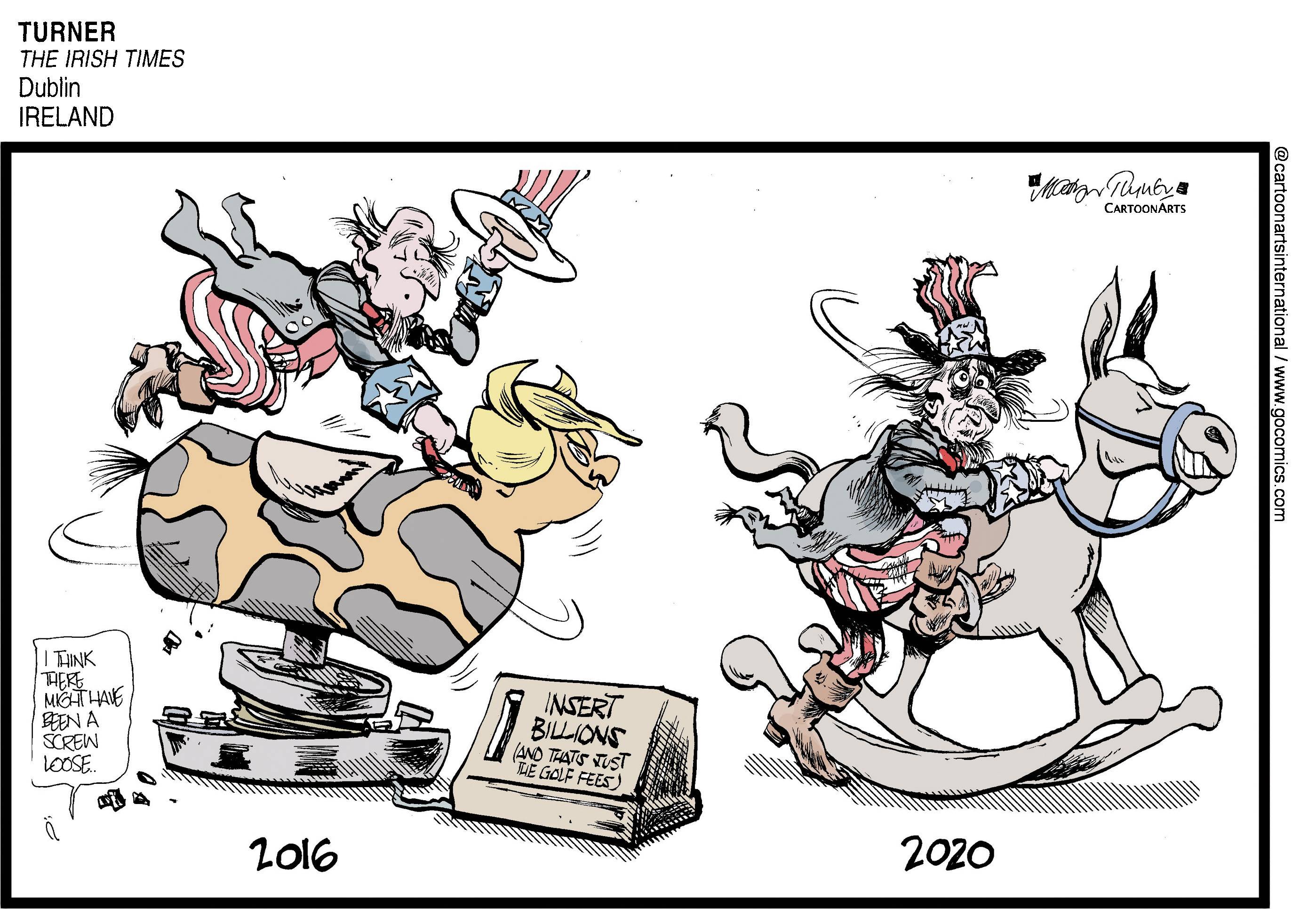Never mind the geysers of overheated 2020 rhetoric about a constitutional crisis. Tuesday evening in the U.S., the nation will likely know that Vice President Walter Mondale's elegant words of concession on election night 40 years ago are still apposite: "The American people quietly wielded their staggering power, and peacefully, without intimidation, made their choice." The following data can help clarify the nature of this year's choice.
Because of what Drew DeSilver of the Pew Research Center calls "the electoral vote inflation factor" — one of the electoral college's many benefits — Joe Biden's victory, which will be decisive in the popular vote, will be even more so in electoral votes. Since the politics of mass mobilization began in America with the election of Andrew Jackson in 1828, the winner's share of the electoral vote has averaged 1.36 times the popular vote share. For example, in 2012 Barack Obama won 51% of the popular vote but 62% of the electoral vote (332 of 538). This inflation factor was especially dramatic, and civically beneficial, in 1960, when John Kennedy defeated Richard Nixon in the popular vote by a minuscule 0.16% (112,827 out of 68,832,483 votes cast). But Kennedy had a 15.6% electoral vote advantage (303 to 219; 56.4% to 40.8%). This was 97.5 times his popular-vote margin, which gave the nation a sense of a decisive election.
So, on Wednesday many Democrats might have kindlier thoughts about the electoral college. Because Democratic candidates lost two of this century's first five presidential elections while winning the popular vote, many Democrats have called for abolishing the electoral vote system and adopting election by direct popular vote. This year, the electoral vote inflation factor favoring Biden should have the wholesome effect of dampening Democrats' enthusiasm for abolition.


















With your current subscription plan you can comment on stories. However, before writing your first comment, please create a display name in the Profile section of your subscriber account page.